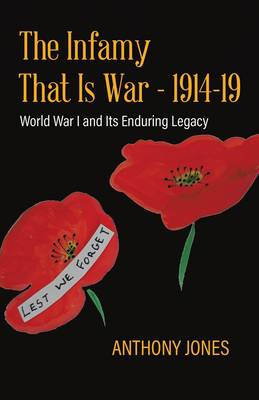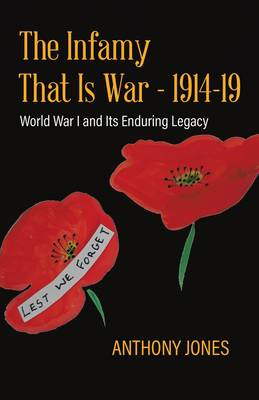
- Retrait gratuit dans votre magasin Club
- 7.000.000 titres dans notre catalogue
- Payer en toute sécurité
- Toujours un magasin près de chez vous
- Retrait gratuit dans votre magasin Club
- 7.000.000 titres dans notre catalogue
- Payer en toute sécurité
- Toujours un magasin près de chez vous
The Infamy That Is War - 1914-19
World War I and Its Enduring Legacy
Anthony JonesDescription
The Franco-German War of 1870-71 had far-reaching consequences. It established both the German Empire and the French Third Republic and set in train the alliances that had formed when Germany first declared war on Russia in August 1914.
The monarchies of all four of the great powers, Britain, Russia, Austro-Hungary, and Germany, were either unprepared for leadership, too old or irrational and easily manipulated by a small coterie of military advisers. All failed to provide the resolution, direction, or coordination of their respective foreign policies. They were little more than spectators as the world "slithered over the brink into the boiling cauldron of war."
By the end of the war, four major imperial powers-the German, Russian, Austro-Hungarian, and Ottoman empires, no longer existed. It reduced the other colonial powers of Italy, France, the Netherlands, Portugal, and Belgium in influence. It set in motion the restructuring of the political order in other parts of the world, particularly in the Middle East. It was in effect a historical full stop. It marked the definitive end of the Victorian era and the advent of a new age of uncertainty.
Australia, pre-War, was regarded as one of the most progressive and innovative countries on earth. Post-War, with the death of 62,000 of its finest and the wounding of 140,000 more, Australia became timid, tentative, and inward-looking - a broken nation.
Spécifications
Parties prenantes
- Auteur(s) :
- Editeur:
Contenu
- Nombre de pages :
- 768
- Langue:
- Anglais
Caractéristiques
- EAN:
- 9780228848769
- Date de parution :
- 22-06-22
- Format:
- Livre broché
- Format numérique:
- Trade paperback (VS)
- Dimensions :
- 140 mm x 216 mm
- Poids :
- 870 g







